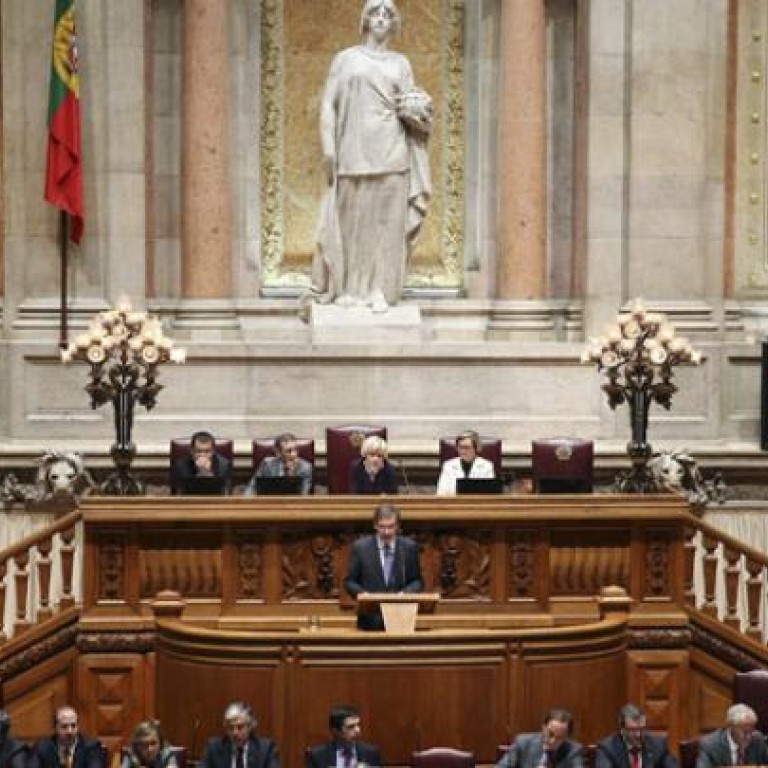
Portugal votes on hotly protested austerity budget
Portugal’s government aims to ram a new austerity budget through parliament on Wednesday, imposing draconian tax increases in the teeth of swelling street protests.
The ruling centre-right coalition has the votes to push the budget through parliament even if the Socialist and extreme left opposition parties carry out a promise to gang up against it.
Citizens’ groups and public sector unions called a rally outside parliament for the afternoon to denounce the austerity squeeze, aimed at curbing the public deficit even during a biting recession.
A general strike is planned for November 14 in Portugal, coinciding with similar action in Spain, under the slogan ‘Against Exploitation and Impoverishment’.
But despite the howls of protest, Prime Minister Pedro Passos Coelho is determined to cut the deficit to 4.5 per cent of gross domestic product next year from a target of 5.0 per cent this year.
His government aims to find 5.3 billion euros (US$6.9 billion) in savings, of which 80 per cent comes from tax rises. The average rate of income tax will rise from 9.8 per cent to 13.2 per cent.
In a speech on Tuesday the prime minister also pointed to a new approach in the longer term, saying that spending cuts had reached the limit of what was feasible and the entire role, responsibilities and architecture of the state had to be reformed.
Portugal’s deficit targets have already been relaxed in agreement with the International Monetary Fund and European Union, which extended a 78-billion-euro (US$101 billion) bailout in May last year.
But even after extra austerity measures this year, the deficit is expected to start next year at 6.0 per cent.
“The budget is very demanding and requires heavy sacrifices of the Portuguese people,” the Portuguese leader told parliament on the eve of the vote.
But “it serves the vital goal of helping us arrive safe and sound in our adjustment programme”.
Opposition Socialist Party secretary general Antonio Jose Seguro denounced “excessive austerity” in the budget.
“It is a budget destined to failure,” he said.
The rejection of the budget by Socialists delivered a blow to a political consensus on the international programme, frequently touted by the country’s rescuers.
The IMF warned last week that risks to Portugal’s rescue programme had climbed significantly after a “strong start”.
“Politically, the broad-based consensus that has buttressed the programme to date is being tested,” it added. “Social and political resistance to adjustment has heightened.”
Portugal’s leader, who is weathering growing criticism of the budget’s tax increases and its social and economic impact, has said he has no choice: the state has reached its limit in cutting spending.
“The state must restrict itself to doing what it does well and it must do better what it must do,” the prime minister said, arguing for a rebalancing of the state’s functions to save another four billion euros by 2014.
“Today there is a wide consensus across the country on the need to proceed towards structural reform of the state,” he said.
Only an “ambitious reform” of government could save the country from being forced to ask for a second bailout, Passos Coelho said.
In the streets, discontent is growing, with official forecasts tipping a record unemployment rate of 16.4 per cent next year.
Hundreds of thousands of people spilled into the streets in mid-September and many citizens’ groups called for a rally against “criminal” budget measures outside the parliament on the afternoon of the budget vote.
